|
|
|

 |
|
|
Paleoclimate/environmental change
|
|
|
MARINE GEOCHEMISTRY
|
|
|
Under development
Dr. Quinn's research group use the geochemistry of marine sediments and corals to
investigate climate variability and changes in mean climate state. The group is
presently investigating modern and Holocene climate in the western Pacific Ocean,
tropical Atlantic Ocean and the Gulf of Mexico. Research activities combine fieldwork
to collect samples and geochemical determinations to create climate time series. Website |
|
|
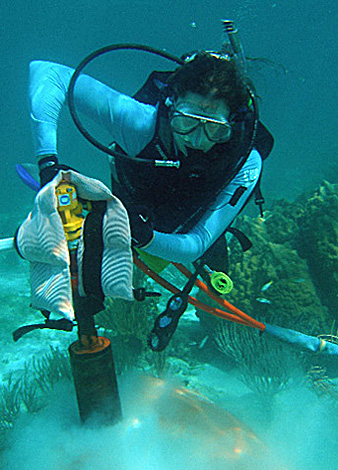 |
|
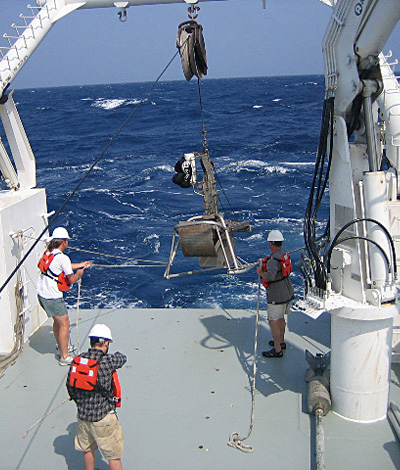 |
Left: drilling coral samples for paleocliamte analysis;
Right: collecting box cores of
marine sediments from the Gulf of Mexico |
SEDIMENT ORAGNIC GEOCHEMISTRY
|
|
|
Dr. Shanahan's group uses a variety of approaches to extract paleoenvironmental information from sediment records,
and in particular,from organic matter preserved in sediments. A recent
area of emphasis is the use of molecular organic techniques, which focus
on analyzing the stable isotopic composition of individual organic
molecules. Current research is focused on developing past climate and
environmental records from sites in Africa, South America, New Zealand,
southeast Asia, and the Sierra Nevada of California. Website |
|
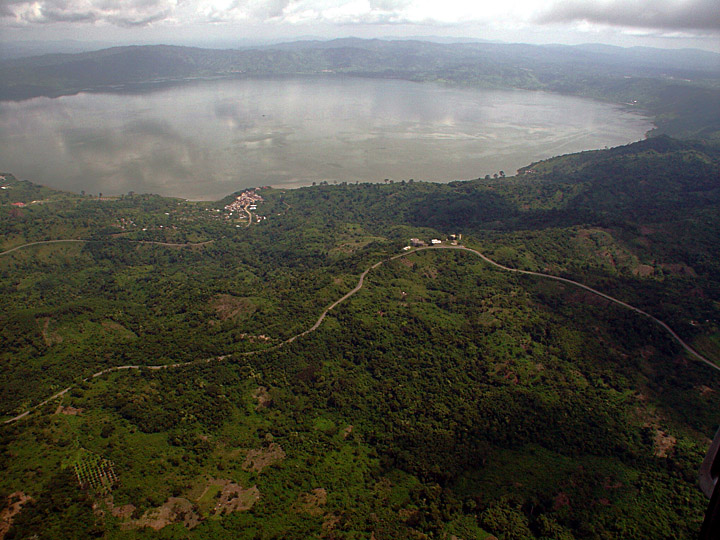 |
The Lake Bosumtwi impact crater, Ghana, one of Dr.
Shanahan's study sites
(the drill rig can barely been seen) |
|
SOIL GAS GEOCHEMISTRY and PEDOGENIC CARBONATE FORMATION
|
| |
|
| Dr. Breecker is primarily interested in pursuing a process-based understanding of soils and
the "critical zone" with the goal of determining how climate influences soils and how soils
influence climate. A better understanding of modern soil processes improves the accuracy of
paleosol-based paleoclimate proxies and helps quantify the fundamental role that soils play
in the Earth's elemental cycling. Breecker's research incorporates both field-based studies
(current projects in Texas, New Mexico, Arizona, Kansas and Tibet) and laboratory experiments
(technique development and soil incubation experiments) and involves the measurement of stable
isotope ratios in water, pedogenic minerals, critical zone gases and
organic matter. These measurements are used to investigate chemical
reactions occurring in soils and to trace material transfer between
soils, caves and the atmosphere. |
| |
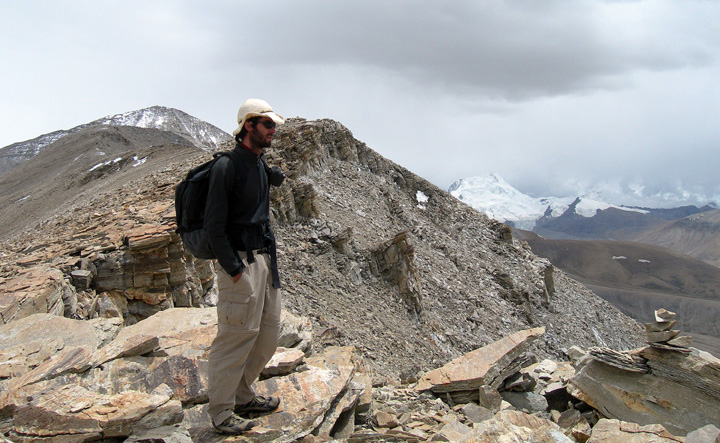 |
| Dr. Breecker standing around looking cool when he should be working |
|
|
TECTONICS and METAMORPHIC GEOCHEMISTRY
|
|
The Barnes group uses stable isotope approaches to investigate a broad spectrum of geochemical problems,
including fluid-rock interactions and metasomatism in the high-T environment, the relationship between metamorphic
processes and deformation from outcrop to regional scales, metamorphism and volatile transport in subduction zones,
and geochemical cycling. Most of this research involves using stable isotopes as a geochemical tracer of fluids in
various tectonic settings. Current projects focus on using chlorine stable isotopes as a fluid tracer in the Central
America and Izu-Bonin-Mariana subduction zones. Of particular interests are serpentinization of the oceanic lithosphere
and the role of serpentinites in subduction zone processes. Website
|
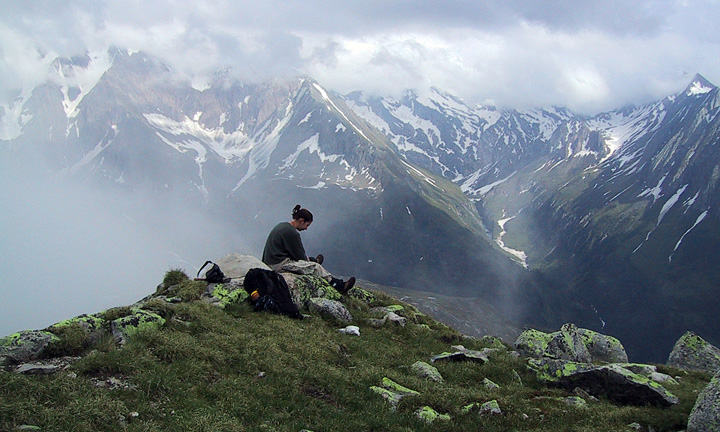 |
|
Dr. Barnes collecting rock samples for isotope analysis in the Alps |
|